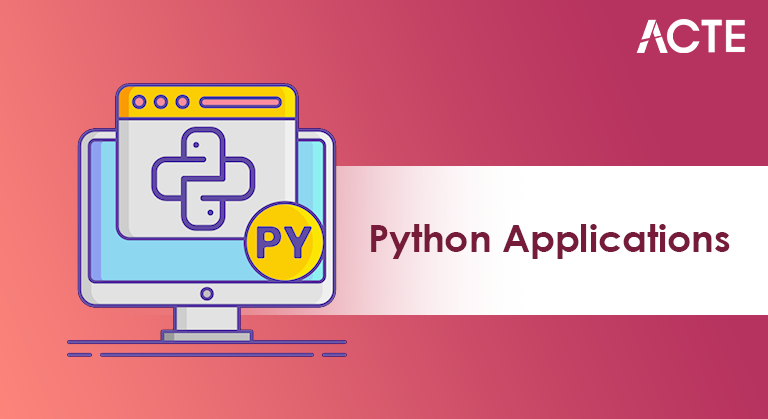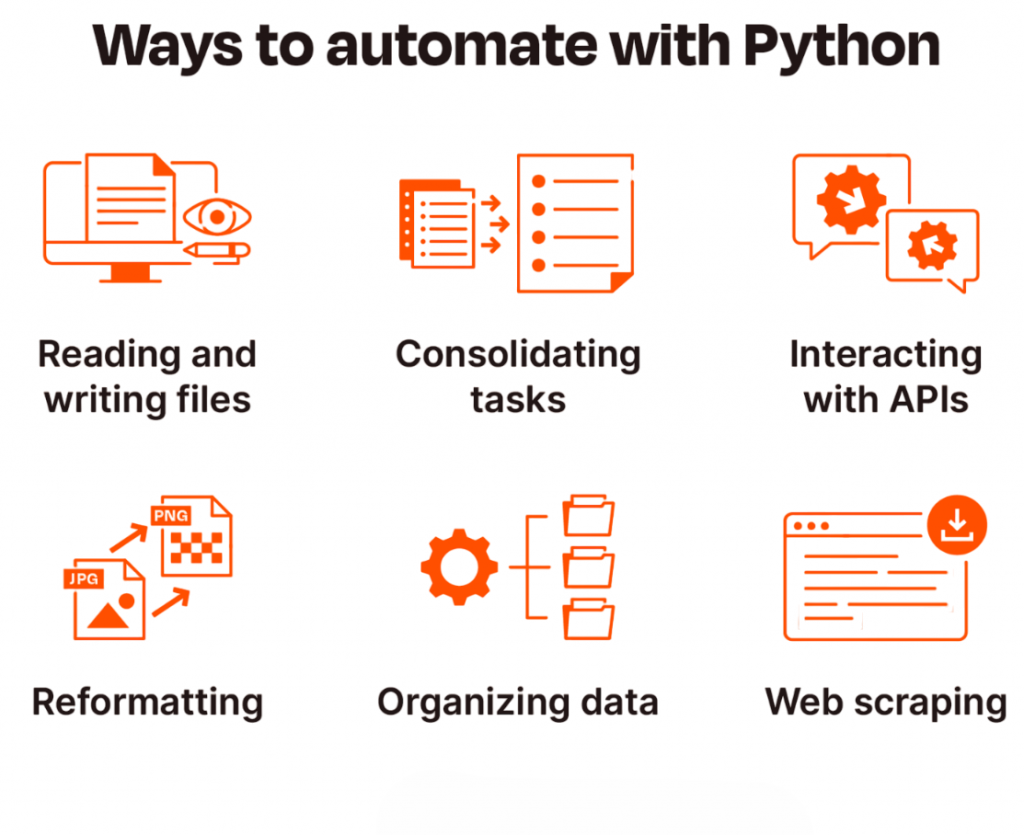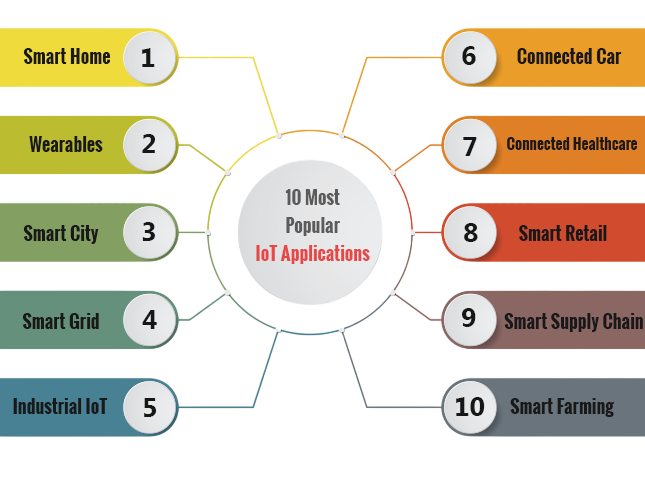
- Introduction Python Applications
- Web Development with Python Applications
- Data Science and Data Analysis
- Artificial Intelligence and Machine Learning
- Automation and Scripting Tasks
- Game Development Using Python (Pygame, etc.)
- Internet of Things (IoT) Applications
- Desktop GUI Application Development
- Network Programming and Cybersecurity Tools
- Conclusion
Introduction Python Applications
Python is a powerful and easy-to-use programming language known for its simplicity and readability. Created by Guido van Rossum and launched in 1991, it quickly gained popularity among developers of all skill levels. Its clear syntax allows new programmers to learn the basics easily, while experienced developers appreciate its flexibility and strong features. Python includes a rich set of standard libraries that simplify many tasks, whether in web development, data analysis, artificial intelligence, or automation. To turn this versatility into real-world expertise, exploring Python Training reveals how structured learning helps developers master core concepts, build scalable applications, and stay competitive in today’s tech-driven landscape. Additionally, Python supports various programming styles, including procedural, object-oriented, and functional programming. This flexibility makes it a great fit for different projects and industries, making it an excellent choice for anyone looking to improve their coding skills or create innovative applications.
Interested in Obtaining Your Python Certificate? View The Python Developer Course Offered By ACTE Right Now!
Web Development with Python Applications
Python has a strong presence in web development, thanks to powerful web frameworks like Django and Flask. Django is a high-level framework that encourages rapid development and clean, pragmatic design. It includes many built-in features such as an ORM (Object-Relational Mapper), authentication, and an admin interface, making it ideal for large-scale applications. To understand how similar principles apply in object-oriented programming, exploring What are Classes and Objects in C# reveals how encapsulation, inheritance, and abstraction help structure scalable applications using reusable components and clean design patterns. Flask, on the other hand, is a micro-framework that offers more flexibility and simplicity. It is often used for small to medium applications where developers prefer to use third-party libraries to add functionality. With these frameworks, developers can create dynamic websites, RESTful APIs, and scalable web services.
Data Science and Data Analysis
- Python stands out as the top choice for data science and analysis because it offers a wide range of libraries and tools. Libraries like NumPy, Pandas, SciPy, and Matplotlib help analysts to manipulate, analyze, and visualize data with ease. Using Python, tasks such as cleaning datasets, performing statistical analysis, and creating meaningful visualizations become simple.
- To strengthen foundational logic alongside data-driven skills, Exploring the Fibonacci Sequence reveals how recursive patterns and iterative thinking in C can sharpen algorithmic understanding essential for tackling complex analytical challenges.
- Jupyter Notebooks provide an interactive platform where users can explore data and share findings easily. Python also works well with big data technologies like Apache Spark, which increases its importance in the growing field of data science. Overall, Python gives analysts the tools they need to uncover valuable insights from data effectively.
- Python dominates the fields of artificial intelligence (AI) and machine learning (ML) due to its ease of use and strong library support. Libraries such as TensorFlow, Keras, PyTorch, and Scikit-learn enable developers and researchers to build and train complex machine learning models, from linear regression to deep neural networks.
- Python’s clean syntax allows AI/ML practitioners to focus on algorithm design rather than syntax complexity. Its large community and extensive documentation make it easier to learn and implement state-of-the-art models for natural language processing, computer vision, recommendation systems, and more.
- To understand how these skills translate across roles, exploring Full Stack Developers and Software Engineers reveals how responsibilities, toolsets, and project scopes vary helping professionals align their Python expertise with the right career path.
- Python plays a crucial role in the Internet of Things (IoT) landscape. Its simplicity and compatibility with microcontrollers like Raspberry Pi and Arduino make it a preferred choice for developing IoT projects. Python can be used to interface with sensors, control actuators, collect data, and connect devices to the cloud.
- Libraries like MQTT and socket programming tools allow Python to facilitate communication between devices. Python’s lightweight nature enables developers to write efficient code for embedded systems without sacrificing readability or maintainability.
- Python supports GUI (Graphical User Interface) development through libraries like Tkinter, PyQt, and Kivy. These libraries allow developers to create user-friendly desktop applications that can run on multiple operating systems. Tkinter is Python’s standard GUI toolkit, ideal for simple applications.
- PyQt provides advanced features and widgets for complex interfaces. Kivy is suitable for applications requiring multi-touch or mobile compatibility. Python’s versatility enables the development of everything from calculators to full-fledged desktop software.
Gain Your Master’s Certification in Python Developer by Enrolling in Our Python Master Program Training Course Now!
Artificial Intelligence and Machine Learning
Automation and Scripting Tasks
Python is a powerful tool for automation and scripting. It is ideal for streamlining various tasks. With Python, you can easily automate repetitive activities, manage system operations, or create simple scripts to gather data.

The language has useful libraries like Selenium, which allows for automated web browsing, and important modules like os, shutil, and subprocess for effective file management and process control. Developers and system administrators often use Python to write cron jobs, scrape websites, process files, and automate testing procedures. To build expertise in these automation workflows, exploring Python Training reveals how structured learning helps professionals master scripting, task scheduling, and real-world integration across diverse environments. This not only boosts productivity but also reduces the chance of human error. By using Python for automation, you can save time and effort, letting you focus on more complex tasks and projects. Overall, Python’s flexibility and ease of use make it a valuable tool in the field of automation.
Are You Preparing for Python Jobs? Check Out ACTE’s Python Interview Questions and Answers to Boost Your Preparation!
Game Development Using Python (Pygame, etc.)
Python plays a big role in game development, especially for prototypes and 2D games. One of the most popular libraries for this is Pygame. It makes it easier to create games by providing tools for graphics, sound, and user input. While Python may not be the top choice for large-scale AAA studios because of performance issues, it excels in other areas. It’s a great option for educational projects, hobbyists, and indie developers. Its ease of use allows developers to quickly test game mechanics and design logic. To dive deeper into hands-on development, exploring Pygame Game Guide reveals how Python’s Pygame library empowers creators to build interactive 2D games, experiment with graphics, and bring ideas to life with minimal setup. This makes it a great starting point for beginners who want to learn game development. Whether you are making a simple arcade game or trying out different game ideas, Python and Pygame offer the resources you need to bring your concepts to life.
Internet of Things (IoT) Applications

Desktop GUI Application Development
Network Programming and Cybersecurity Tools
Python is widely used in network programming and cybersecurity due to its ability to handle sockets, protocols, and data transmission with ease. Libraries such as socket, Twisted, and Scapy allow developers to build network tools and applications. In cybersecurity, Python is favored for writing scripts for penetration testing, vulnerability scanning, and packet analysis. To complement these scripting skills with efficient data handling in Java, exploring How to Use HashMap reveals how key-value storage simplifies lookup operations, supports fast access, and enhances logic flow in network-driven applications. Tools like Nmap, Metasploit, and Wireshark often integrate Python for automation and extension. Python’s network programming simplicity accelerates the development of custom tools for ethical hacking and system defense.
Conclusion
Python is a top programming language because it is flexible, easy to learn, and has a large library ecosystem. It serves many fields, including web development, artificial intelligence, finance, and education, which makes it useful for many applications. With strong community support, compatibility across different platforms, and great integration options, Python works well for both individuals and organizations. As technology progresses, Python has shown it can adjust, reinforcing its standing in the tech industry. To harness its full potential in real-world applications, exploring Python Training reveals how structured learning accelerates mastery of Python’s versatile features from automation and data analysis to web development and AI. Whether you are just starting out or are an experienced developer, learning Python can lead to many job opportunities and spark new projects. Mastering this language not only improves your skill set but also prepares you to succeed in a digital world that depends more on programming solutions.





